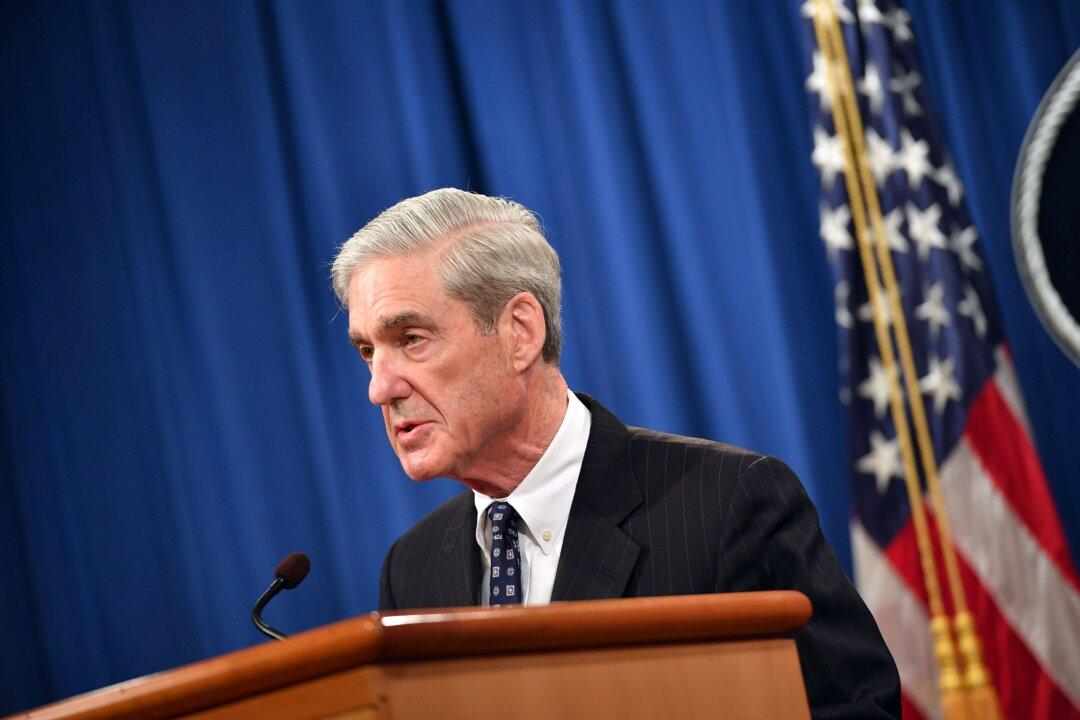Special counsel Robert Mueller on May 29 formally closed the special counsel office, announced an end to the Russia investigation, and said he will return to private life.
Mueller, speaking before reporters at the Department of Justice, said he will make no further comments about the investigation. The special counsel reiterated the findings of his final report and said any further inquiries should refer to the document as his testimony.





